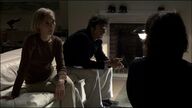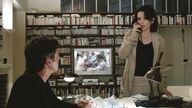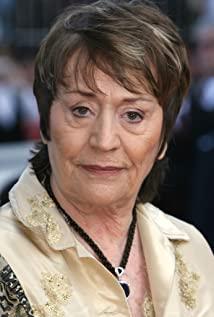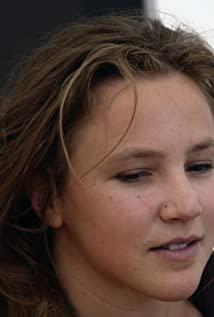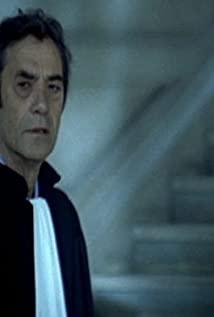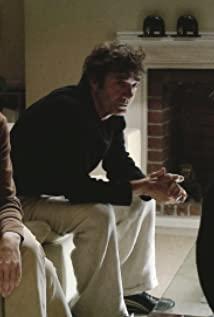The structure of classic narrative movies generally has 5 questions of when where who what why. Suspense genres may be more interested in who, what and why according to the needs of the plot. Simply put, who did it, what did it, and why did it. But this film "Hidden Camera" overturns all the above problems. These problems are not important. The important thing is what happened in the past and how the previous story affects the present. Through deep excavation of the past, we can see that the director Michael Haneke's ambitions for the film.
Many people say that it doesn't matter who shot the last videotape. What matters is the subtle changes in each person's psychology that are shown in the process of pursuing the results. family and social factors. How each person reacts in the unknown chaos, and what kind of synthesis the actions of each reaction constitute, seems to be what the film wants to show.
The male protagonist George is the host of the TV reading talk show. He usually looks gentle and polite. There is also a hall like a library at home. The family is happy and life is smooth. Until the video tape that appeared at the door of the house awakened the past in his heart. This episode of his past began to surface when a videotape of his life occasionally disrupted his life, along with a painting of vomiting blood.
At the beginning, when I watched the video tape with my wife Anna and discussed possible situations, the story was stable.
When my wife discussed the video tape in front of her friends, and the picture of my hometown appeared on the screen, the conflict officially started.
After identifying Majid's place, George said, "I have a hunch that I should know who did all this, but I'm not sure."
Then, after a pause, his wife asked, "And then?"
"I'll have to check.
" Is there something wrong with you, please tell me, maybe it has something to do with me."
"I don't know, it's inconvenient to say." The
wife got the answer of refusal, and after a grumbling, she said: "Do you know what you are doing, you heard that Have you ever trusted him?"
"You're in the middle of the other party's favor, and he just wants to ruin our lives."
He wanted her to trust him, he could solve the problem, she wanted him to trust her, tell her what happened, and in the end no one trusted her Who.
The trust between husband and wife began to slowly collapse from this moment, the relationship between husband and wife began to become uncertain from the initial harmony, the husband began to solve this problem alone, and the wife began to seek solace in other ways while unable to touch her husband's heart. It directly led to the son running away from home, and the problems between husband and wife also spread to the family level.
Majid, who thought it was revenge, recorded a video, and George rang the doorbell of Majid's house in anger.
Majid said this: "You don't believe me, I have no ill will towards you, I didn't send a video tape or anything, and I didn't remember this painting. I'm glad you came.
Then George slammed the door and left, Maggie bowed his head . , I didn't expect the reunion of playmates to be so embarrassing, and then he covered his face and wept.
After slamming the door and leaving, Majid's actions were recorded on video tape and sent to the male host's house. Things that were sure were uncertain here again. The tape doesn't seem to be shot by Majid, but the person who shot it should have something to do with him.
Immediately following the direction of the story, it came to the disappearance of the male protagonist's son. At this time, the director officially introduced another theme - race. When the male protagonist was narrating the past, he brought it with him, and the Middle East appeared on the TV. When there was a regional dispute, race also entered the scope of discussion in this film. Recalling the previous chicken blood incident in 1961, when the male protagonist insulted black people for riding bicycles and did not look at the road, and then brought the police to take the Algerian horses without the slightest evidence. The Ji father and son took them away, and everything was connected through racial discrimination, which seemed to be explained clearly.
But by the end of the film, Magee's son completely denied that he did the tapes, and said, "I just want to know how you feel about killing someone, now I know." Because this sentence George said before: "I will never feel any guilt for your father's misfortune. That (Majid's suicide) is not my fault." At this time, perhaps we can understand that the male protagonist's inner discriminatory mentality has not changed, and the incident of the video has changed him. more indifferent, and the director's real intention was not the videotape.
This is a fictional feature film. In the fictional film, videotape is introduced. The videotape records the past life. Then the life recorded by the film should be real. This way of embedding the past events into the present, so in the end It is easy to question whether the story of the film is fictional or real, and whether the videotape is real or fictional. The uncertain changes caused, the direction of the whole film was completely uncertain for a time, and who shot the video proposed at the beginning, this question has also gone to a black hole, and has no meaning to tell, maybe the screenwriter can create a kind of To explain and solve this problem, like the dialogue between George's son and Majid's son at the end, it is completely possible to use the method of close-up and sound to make up the story, which is obviously not what Michael Haneke did. ,
The director who shot the tape may not have wanted to reveal it in the first place. This may just be a formal thing, because through the tape, we can see what the director really wants to show, but it is definitely not "who shot the tape". Simple kernel. To a certain extent, the who here can be understood as the audience. Every time a videotape is played, it is a subjective viewpoint shot with the audience as the main body. Through the movement of the camera and the change of viewpoint, the audience is forced to pay attention to what the characters in the scene are watching. The content of the film seamlessly connects the audience's desire to watch in the movie, giving the audience a strong sense of substitution.
The meaning of the videotape may be to let the audience enter the story line and the medium of the film. When the effect is achieved, it is meaningless to look at it with doubts. Someone admits that he shot it, so what, go to jail for a few years? There is no actual property damage, just a psychological breakdown, will the police take care of it?
So who shoots the videotape has never been the focus. On the one hand, the director uses his shooting skills to keep the film in a chaotic flow of consciousness, but it never collapses. It is the director's ambition to show the uncertainty of the characters in such a state.
View more about Caché (Hidden) reviews




